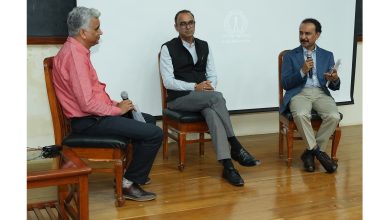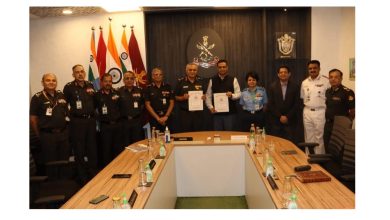Indian Meteorological Department, Govt of Odisha launch Malaria Planning and Prediction Toolkit

The toolkit utilises climate and weather data in identifying malaria hotspots and predicting outbreaks
Malaria No More India unveiled the operations of the Malaria Prediction and Planning System under the ‘Forecasting Healthy Futures’ (FHF) initiative – a consortium convened in 2020 by Malaria No More and Crown Prince Court of Abu Dhabi’s ‘Reaching the Last Mile’ initiative. The sophisticated system, powered by the Malaria Prediction and Planning Toolkit (MPPT), is a 360° solution basket and has been developed under FHF in partnership with the Government of Odisha. MPPT is the first of its kind toolkit that uses an advanced data-driven, AI-powered, story-telling system to strengthen early warning systems and health decision making.
Malaria Prediction and Planning Toolkit utilises climate and weather data in identifying malaria hotspots and predicting outbreaks, thus allowing health leaders to optimally time and target behavioural interventions, pre-position supplies, and deploy frontline health workers to avoid extreme weather, among other possibilities.
The Institute for Malaria and Climate Solutions (IMACS), the first institute in the Forecasting Healthy Futures constellation, will continue to refine the function and reach of the existing MPPT, adding new sources of data and validating its application.
IMACS will also include a deployable corps of technical and policy expertise, to assist cost-effectively scaling the FHF approach beyond our sentinel sites.
Intimated about the launch of the toolkit, Naba Kisore Das, Health Minister, Government of Odisha expressed his approval and stated, “We are excited to integrate the Malaria Prediction and Planning Toolkit in Odisha to accelerate Odisha’s progress towards Malaria elimination. This toolkit presents a compelling opportunity of intersecting disruptive innovations with the malaria elimination effort and allows improved decision-making and health access at the last mile. The fight against malaria stands to benefit greatly with initiatives such as these, especially in the endgame stage of eliminating malaria by 2030.”
The conclave also hosted senior officials from the Department of Health and Family Welfare and the India Meteorological Department as Guests of Honor.
Emphasising the collaboration between the Government of Odisha, India Meteorological Department, and Malaria No More, Dr Mrutyunjay Mohapatra, Director General of Meteorology, India Meteorological Department, Government of India said, “Weather information and forecast of various range help in better planning, prevention, and control of many climate-sensitive diseases, including malaria. There is a need for a multi-model consensus for weather-based early warnings while working towards malaria elimination. At the same time, it is critical to formulating an institutional mechanism to take these advanced solutions to the last mile. Synergising the efforts of all stakeholders, we will look at communicating public weather data that will benefit all. We are excited to play an integral role in advancing the malaria prediction and Planning Toolkit with the provisions of weather-based early warning. I invite a collaborative effort of the National Centre for the Vector Borne Diseases Control, National Centre for Diseases Control, Indian Council of Medical Research bodies, Government of Odisha and Malaria No More to work towards this novel cause of malaria elimination.”
Commenting on the launch of the toolkit, Dr Kaushik Sarkar, Director, Institute for Malaria and Climate Solutions (IMACS) And Interim Director, Malaria No More India said, “Malaria No More strives to achieve one of humanity’s greatest achievements – eliminating Malaria within our lifetimes. This arduous effort requires continuous collaboration and innovative approaches. We hope that the Malaria Prediction and Planning Toolkit is a step in this direction. The Institute for Malaria and Climate Solutions, with its robust community of practice and scientific advisory board, and the Forecasting Healthy Futures initiative endeavours to pioneer global efforts to improve the health security agenda.”
MPPT will support existing innovations and help India move forward to achieve its malaria elimination goal by 2030.




